Almonds are one of the most popular nuts in the world, prized for their versatility, nutritional benefits, and delicious taste. These small, oval-shaped nuts are the edible seeds of the almond tree (Prunus dulcis). They are commonly consumed on their own, roasted, or raw, as well as used in baking, cooking, and as a key ingredient in a wide range of products, such as almond butter, almond milk, and almond flour. Nutritional Profile of Almonds Almonds are a powerhouse of essential nutrients, making them a valuable addition to any diet. They are particularly rich in healthy fats, protein, vitamins, minerals, and antioxidants. Just a handful of almonds can provide a significant amount of your daily nutrient requirements. One of the standout features of almonds is their high content of monounsaturated fats, which are heart-healthy fats known to support overall cardiovascular health. Almonds are also an excellent source of fiber, providing a filling and satisfying snack that can help curb hunger and support weight management. In addition to healthy fats and fiber, almonds are packed with essential nutrients, including vitamin E, magnesium, potassium, and calcium. Vitamin E is a powerful antioxidant that helps protect cells from damage caused by free radicals, while magnesium plays a crucial role in over 300 enzymatic reactions in the body.

.
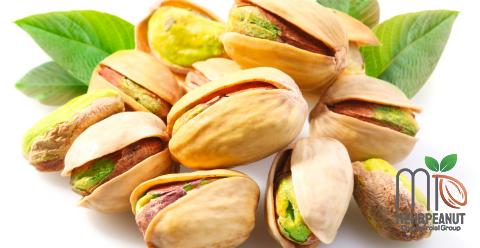 Potassium and calcium are essential minerals for maintaining healthy bones, muscles, and nerve function. Health Benefits of Almonds The impressive nutritional profile of almonds translates into numerous health benefits for those who incorporate them into their diet regularly. Here are some of the key health benefits associated with consuming almonds: 1. Heart Health: Almonds have been shown to support heart health by reducing LDL cholesterol levels, lowering blood pressure, and decreasing inflammation. The monounsaturated fats, fiber, and antioxidants in almonds work together to promote cardiovascular wellness. 2. Weight Management: Despite being calorie-dense, almonds have been found to aid in weight management due to their high fiber and protein content, which help increase feelings of fullness and reduce overall calorie intake throughout the day. 3. Blood Sugar Control: Almonds have a low glycemic index, meaning they have a minimal impact on blood sugar levels. Studies have shown that incorporating almonds into a balanced diet may help improve blood sugar control and reduce the risk of developing type 2 diabetes. 4. Bone Health: Almonds are an excellent source of calcium, magnesium, and phosphorus, all of which are essential for maintaining strong and healthy bones. Regular consumption of almonds can help support bone density and reduce the risk of osteoporosis. 5. Brain Health: The vitamin E content in almonds has been linked to cognitive function and brain health. Antioxidants in almonds may also help protect the brain from oxidative stress and age-related cognitive decline. Ways to Incorporate Almonds into Your Diet With their impressive nutritional profile and numerous health benefits, almonds are a versatile ingredient that can be easily incorporated into a variety of dishes. Here are some delicious and creative ways to enjoy almonds: 1. Snack on whole almonds as a satisfying and nutritious pick-me-up throughout the day.
Potassium and calcium are essential minerals for maintaining healthy bones, muscles, and nerve function. Health Benefits of Almonds The impressive nutritional profile of almonds translates into numerous health benefits for those who incorporate them into their diet regularly. Here are some of the key health benefits associated with consuming almonds: 1. Heart Health: Almonds have been shown to support heart health by reducing LDL cholesterol levels, lowering blood pressure, and decreasing inflammation. The monounsaturated fats, fiber, and antioxidants in almonds work together to promote cardiovascular wellness. 2. Weight Management: Despite being calorie-dense, almonds have been found to aid in weight management due to their high fiber and protein content, which help increase feelings of fullness and reduce overall calorie intake throughout the day. 3. Blood Sugar Control: Almonds have a low glycemic index, meaning they have a minimal impact on blood sugar levels. Studies have shown that incorporating almonds into a balanced diet may help improve blood sugar control and reduce the risk of developing type 2 diabetes. 4. Bone Health: Almonds are an excellent source of calcium, magnesium, and phosphorus, all of which are essential for maintaining strong and healthy bones. Regular consumption of almonds can help support bone density and reduce the risk of osteoporosis. 5. Brain Health: The vitamin E content in almonds has been linked to cognitive function and brain health. Antioxidants in almonds may also help protect the brain from oxidative stress and age-related cognitive decline. Ways to Incorporate Almonds into Your Diet With their impressive nutritional profile and numerous health benefits, almonds are a versatile ingredient that can be easily incorporated into a variety of dishes. Here are some delicious and creative ways to enjoy almonds: 1. Snack on whole almonds as a satisfying and nutritious pick-me-up throughout the day.
..
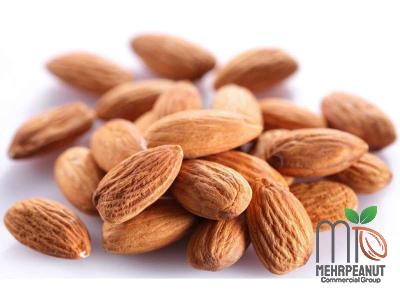 2. Add sliced almonds to salads, oatmeal, yogurt, or smoothie bowls for a crunchy texture and nutty flavor. 3. Make your own almond butter by blending roasted almonds until smooth and creamy. Enjoy it on toast, fruit, or as a dip for veggies. 4. Use almond flour as a gluten-free alternative in baking recipes, such as cookies, muffins, and cakes. 5. Make your own almond milk by blending soaked almonds with water and straining the mixture. Use almond milk in coffee, tea, cereal, or smoothies. In conclusion, almonds are not just a tasty snack; they are a nutrient-dense superfood that offers a wide range of health benefits. Whether you enjoy them whole, sliced, roasted, or in the form of almond butter or almond milk, incorporating almonds into your diet can be a delicious and satisfying way to support your overall health and well-being. So why not stock up on this versatile and nutritious nut today and experience the many wonders of almonds for yourself? The versatility and nutritional benefits of almonds make them a valuable addition to any diet. Whether you’re looking to support heart health, manage your weight, control blood sugar levels, promote bone health, or boost brain function, almonds offer a wide range of benefits that can help you achieve your health and wellness goals. If you’re concerned about the calorie content of almonds, fear not. While almonds are energy-dense due to their healthy fat content, research suggests that the calories in nuts may be overestimated, as the body may not absorb all of the fat in nuts during digestion. This means that almonds may be a more weight-friendly snack than previously thought. When it comes to incorporating almonds into your diet, the possibilities are endless. From savory to sweet dishes, almonds can add a delicious crunch and nutty flavor to a wide range of recipes. You can use almonds in both traditional and innovative ways to enhance the taste and nutritional value of your meals.
2. Add sliced almonds to salads, oatmeal, yogurt, or smoothie bowls for a crunchy texture and nutty flavor. 3. Make your own almond butter by blending roasted almonds until smooth and creamy. Enjoy it on toast, fruit, or as a dip for veggies. 4. Use almond flour as a gluten-free alternative in baking recipes, such as cookies, muffins, and cakes. 5. Make your own almond milk by blending soaked almonds with water and straining the mixture. Use almond milk in coffee, tea, cereal, or smoothies. In conclusion, almonds are not just a tasty snack; they are a nutrient-dense superfood that offers a wide range of health benefits. Whether you enjoy them whole, sliced, roasted, or in the form of almond butter or almond milk, incorporating almonds into your diet can be a delicious and satisfying way to support your overall health and well-being. So why not stock up on this versatile and nutritious nut today and experience the many wonders of almonds for yourself? The versatility and nutritional benefits of almonds make them a valuable addition to any diet. Whether you’re looking to support heart health, manage your weight, control blood sugar levels, promote bone health, or boost brain function, almonds offer a wide range of benefits that can help you achieve your health and wellness goals. If you’re concerned about the calorie content of almonds, fear not. While almonds are energy-dense due to their healthy fat content, research suggests that the calories in nuts may be overestimated, as the body may not absorb all of the fat in nuts during digestion. This means that almonds may be a more weight-friendly snack than previously thought. When it comes to incorporating almonds into your diet, the possibilities are endless. From savory to sweet dishes, almonds can add a delicious crunch and nutty flavor to a wide range of recipes. You can use almonds in both traditional and innovative ways to enhance the taste and nutritional value of your meals.
…
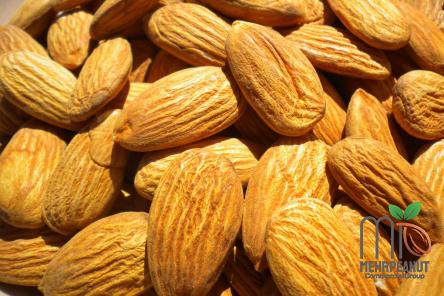 For example, you can create a nutrient-packed almond and kale salad by combining sliced almonds with fresh kale, cherry tomatoes, avocado, and a zesty vinaigrette dressing. The almonds provide a satisfying crunch and boost of protein, making this salad a satisfying and nutritious meal option. If you have a sweet tooth, you can indulge in homemade almond butter cups made with dark chocolate and roasted almond butter. These decadent treats offer a balance of sweet and salty flavors, along with the nutritional benefits of almonds and antioxidant-rich dark chocolate. For a quick and easy snack, you can whip up a batch of almond and date energy balls by blending almonds, dates, coconut oil, and a dash of cinnamon in a food processor. These bite-sized treats are perfect for satisfying hunger between meals and providing a natural energy boost. In the realm of beverages, almonds can be used to create a variety of dairy-free alternatives, such as almond milk, almond creamer, and almond-based smoothies. These creamy and delicious drinks offer a plant-based alternative to traditional dairy products, making them suitable for vegans and individuals with lactose intolerance. In summary, almonds are a nutrient-dense superfood that offers a wide range of health benefits, from supporting heart health to aiding in weight management and blood sugar control. With their delicious taste and versatile uses, almonds can be enjoyed in a variety of dishes and snacks, making them a valuable addition to any diet. So next time you’re looking for a healthy and satisfying snack or ingredient, reach for a handful of almonds and experience the many wonders of this nutrient-packed nut. Whether you enjoy them on their own, in salads, in baking, or in beverages, almonds are sure to delight your taste buds and nourish your body from the inside out. Embrace the power of almonds and reap the numerous benefits of this versatile and delicious superfood.
For example, you can create a nutrient-packed almond and kale salad by combining sliced almonds with fresh kale, cherry tomatoes, avocado, and a zesty vinaigrette dressing. The almonds provide a satisfying crunch and boost of protein, making this salad a satisfying and nutritious meal option. If you have a sweet tooth, you can indulge in homemade almond butter cups made with dark chocolate and roasted almond butter. These decadent treats offer a balance of sweet and salty flavors, along with the nutritional benefits of almonds and antioxidant-rich dark chocolate. For a quick and easy snack, you can whip up a batch of almond and date energy balls by blending almonds, dates, coconut oil, and a dash of cinnamon in a food processor. These bite-sized treats are perfect for satisfying hunger between meals and providing a natural energy boost. In the realm of beverages, almonds can be used to create a variety of dairy-free alternatives, such as almond milk, almond creamer, and almond-based smoothies. These creamy and delicious drinks offer a plant-based alternative to traditional dairy products, making them suitable for vegans and individuals with lactose intolerance. In summary, almonds are a nutrient-dense superfood that offers a wide range of health benefits, from supporting heart health to aiding in weight management and blood sugar control. With their delicious taste and versatile uses, almonds can be enjoyed in a variety of dishes and snacks, making them a valuable addition to any diet. So next time you’re looking for a healthy and satisfying snack or ingredient, reach for a handful of almonds and experience the many wonders of this nutrient-packed nut. Whether you enjoy them on their own, in salads, in baking, or in beverages, almonds are sure to delight your taste buds and nourish your body from the inside out. Embrace the power of almonds and reap the numerous benefits of this versatile and delicious superfood.

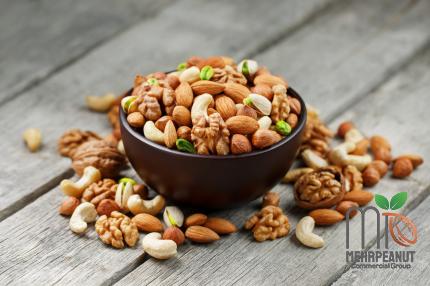


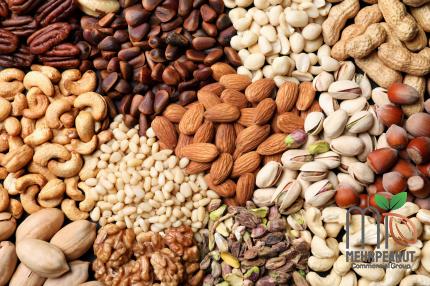
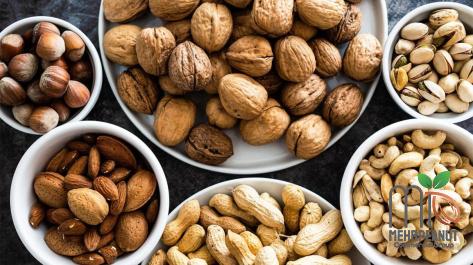
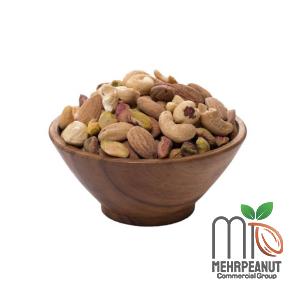
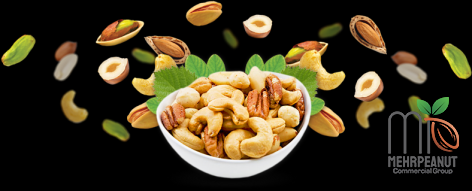

Your comment submitted.